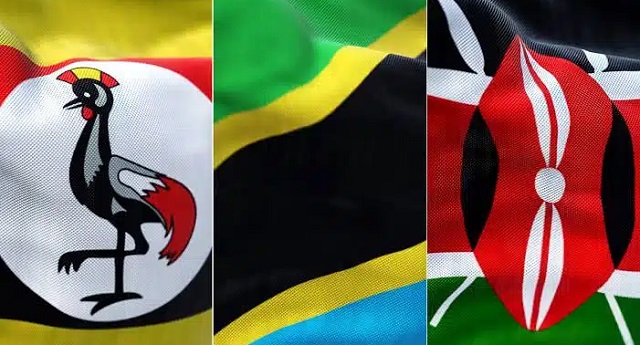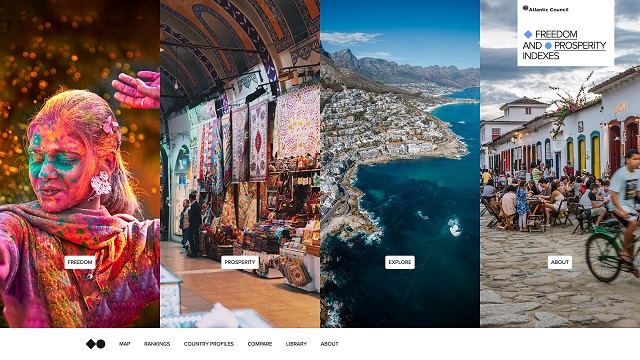
Uganda improves on freedom, lags on prosperity
COVER STORY | THE INDEPENDENT |Is freedom a precondition of prosperity? Do countries that become freer also become more prosperous? How are freedom and prosperity distributed around the world today? What has been the evolution of these measures in the past twenty-eight years and why? What components of freedom and prosperity have increased or decreased the most, and where?
These are among questions answered by a new report ‘Prosperity that Lasts: The 2023 Freedom and Prosperity Indexes’ published by the American think-tank, The Atlantic Council.
The Council’s Freedom and Prosperity Centre created these indexes to provide a snapshot of the current distribution of freedom and prosperity, gain a sense of the evolution of both over the last 28 years at global, regional, and country levels, and facilitate an exploration of the relationship between freedom and prosperity.
A distinctive aspect of the Freedom and Prosperity Indexes is their root in and reflection of an expansive understanding of what constitutes a free and prosperous society. The Freedom Index includes measures of economic, political, and legal freedom. This broader definition of freedom differentiates the index from other measures focused on specific institutional aspects (electoral, corruption, economic openness, and so on). Likewise, the Prosperity Index is more exhaustive than previous measurement projects such as the United Nations Human Development Index or various poverty indexes.
The rationale for the authors is that their approach is based on the premise that one can gain new insights and better understand the mechanisms that lead to overall prosperity by analyzing the relationships and interconnections between different dimensions of freedom.
Also the distribution of prosperity highly resembles that of freedom: regions and countries with higher scores in our Freedom Index also attain higher levels of prosperity, according to the report which presents statistical analysis to convey this close association on freedom and prosperity, not only at a global level but also within regions and other subgroups of countries.
“In all regions, countries that are free tend to also be prosperous,” the authors say.
The report also presents several regional trends of note. On the positive side, sub-Saharan Africa is the region where prosperity has grown fastest.
The Freedom Index includes measures of legal, economic, and political freedom. Legal freedom measures the degree to which a country abides by the rule of law. Political freedom reflects a country’s institutional framework for the selection of those holding executive political power and the limits and controls imposed on its exercise. Economic freedom measures whether the bulk of economic activity in a country is guided by the principles of free and competitive markets. We believe that all three are necessary for a society to be fully free, the authors argue.
To compare, Uganda scores 52.1% on economic freedom, which is the same score as Kenya which has a better overall ranking on the index. But Uganda scores better on women economic emancipation. Also the overall trend shows a marked decline on all economic indices in Kenya compared to Uganda. Other aspects considered under economic freedom are investment freedom, property rights, and trade rights.
Under political rights, the index looks at elections, civil liberties, and legislative constraints on the executive. Under legal freedoms, it looks at bureaucracy and corruption, security, clarity of the law, judicial independence and effectiveness, and informality. Kenya scores better than Uganda on most of the indices.
The Freedom Index signals a clear decrease in freedom starting in 2020, attributable mostly to the COVID-19 pandemic.
“Given the strict government restrictions imposed around the world, the magnitude of the decrease is probably understated, especially in terms of economic freedom,” the authors say.
The authors say, sub-Saharan Africa is the area with the highest number of nations (46 out of 54) primarily placed in the mostly free and mostly unfree categories (21 and 18 countries, respectively).
Mauritius, Namibia, Botswana, and Ghana scored among the mostly free nations, while Gabon, Rwanda, Mozambique, and Uganda ranked as mostly unfree, but are close to moving into the next higher category. Chad, Equatorial Guinea, Sudan, South Sudan, and Eritrea are all long-term, closed dictatorships or nations involved in civil conflict.
“Sub-Saharan Africa shows steady progress in freedom between 1995 and 2019, with a total increase of around 11 percent on the average score of the region in the period, the report says. It adds that the freedom sub indexes for the region suggest that the main drivers of this positive evolution are economic freedom and, to a lesser extent, political freedom.
“This is certainly good news, but sub-Saharan countries still have ample room for improvement in political and especially legal freedom,” the report says.

The Freedom Index gives equal weight to its three components (economic, legal, and political freedom). It is therefore possible for a state to score relatively high in the overall index even if it significantly underperforms in one dimension. This is the case with Singapore, which has a low score on political freedom (it ranks one hundredth out of 164 countries) but very high scores on legal and economic freedom (ranking sixth and fifteenth, respectively).
Equally, the Prosperity Index takes a similarly broad view. It goes beyond the measurement of pure material well-being to evaluate several other social aspects that the authors believe are necessary in a prosperous society. The Prosperity Index has six indicators: income, health, education, environment, minority rights, and inequality.
Uganda scores best in health and environment at 66.7 and 77.3 respectively compared to Kenya’s 65.9 and 72.5 respectively. As a result, Kenya is ranked higher, at position 106 globally and among the mostly not prosperous countries, while Uganda is ranked at position 149 and in the lower not prosperous countries category.
The global trend in overall prosperity since 1995 is positive and sustained. All countries ranked as fully prosperous also rank as fully free, but not all free countries are in the top prosperity category, the report says.
This may give support to two intuitions, the report says. First, that freedom could be a necessary condition for prosperity but it might not be sufficient, or at least there’s no proof that freedom instantly translates into prosperity.
“Put differently, freedom and its dimensions may take time to have an effect on prosperity,” the authors say. A total of 89 countries (54.2 percent of the total 164 countries) are categorized in the two lowest categories: Up to 59 are ranked as mostly unprosperous and 30 as unprosperous.
“In terms of world population, the numbers are even more disappointing, as some of the most populous countries of the world all fall in these two categories,” the report says. These countries include China, India, Indonesia, Nigeria, and Pakistan.
In particular, 49 percent of the world population live in mostly unprosperous countries, and 29 percent in fully unprosperous nations. A total of 30 countries are labeled as unprosperous. Most of them are in sub-Saharan Africa (22), together with Laos, Haiti, India, Pakistan, Myanmar, Syria, Afghanistan, and Yemen. Some of the worst performers were experiencing war and conflict. They include Yemen, Afghanistan, South Sudan and Syria.
African recovery
A related story by the syndicated media agency, bird story, says African countries that suffered some of the worst and longest civil wars are recording the biggest moves in a freedom index, with the continent logging the biggest growth in a key prosperity score in close to 30 years.
Citing the Atlantic Council, it says the report shows Rwanda, Sierra Leone, and Ethiopia registered the biggest score changes in a global ranking of freedom and prosperity between 1995 and 2022.
Of the three, Sierra Leone and Rwanda made the most significant gains in their freedom scores.
Sierra Leone ranked 84th globally and increased its freedom rankings by 25 points, while Rwanda ranked 109th and improved its freedom score from 33.4 in 1995 to 53.5 in 2022.
“Rwanda’s freedom score rose by more than twenty points in the 1995-2022 period, following a civil war in 1994 the legal and economic freedom components drove most of the increase,” says the report.
The freedom scores reflect improved robustness in abiding by the rule of law, a more robust institutional framework to elect and hold political leaders into account and increasingly free and competitive markets to run businesses successfully.

Consequently, all three countries recorded a 20 points increase in their prosperity scores- the largest movements globally over the period under review.
“Countries with higher scores in our Freedom Index also attain higher levels of prosperity. In all regions, countries that are free tend to also be prosperous,” notes the report.
These significant strides underscore the rise from the ashes of these countries that have, in turn, helped Africa record a higher-than-global average improvement in the rate of prosperity.
Africa’s prosperity score grew by 10 points over the review period compared to the global average of 0.4 points per year between 1995 and 2012 and only 0.1 points between 2012 and 2022 due to the impacts of the COVID-19 pandemic.
Africa’s growing prosperity was buoyed by improvements in environment and health, whose scores rose by 25.7 and 15 points, respectively.
These factors continue to exhibit today in these and other countries, highlighting a sustained growth in economic freedoms and positive future prospects for Africa’s growth story.
Ethiopia, for instance, has embarked on economic reforms that promote private-sector participation in finance, telecommunications, logistics and manufacturing.
Among Key developments in modernizing Ethiopia’s heavily state-run economy has been the privatization of Ethio Telecom- following licensing of Kenyan operator Safaricom in May 2021.
In February, the Ethiopian government proposed partial privatization of Ethio-Telecom by selling up to 45% stake. This move has attracted three other foreign operators, France’s Orange, Abu Dhabi-headquartered Etisalat Group and the Netherlands’ Veon, that have since expressed interest in the market.
Conversely, Rwanda is firming up its sustainable development journey by placing the circular economy at the core of its decision-making and practice.
In December 2022, the country of a thousand hills launched a 14-year Circular Economy Action Plan and Roadmap that will cost it US$211.2 million to manage waste and adopt clean production technologies.
Rwanda also revised its green growth and climate resilience strategy in June this year.
“The revised Green Growth and Climate Resilience Strategy aims to guide national policy and planning in an integrated way, mainstream climate change into all sectors of the economy, and position Rwanda to access international climate funding and investment,” said Rwanda’s Minister of Environment, Dr Jeanne d’Arc Mujawamariya, in a statement.
Seychelles, which ranked 35th globally, leads Africa as the freest nation, with a freedom score of 79.7, followed by Cape Verde, ranked 40th with a score of 78.8.
Mauritius (47th) with a score of 74.7, Namibia (51st) with a score of 72.9, and Botswana (55th) with a score of 72, top Africa’s freest economies.
In North Africa, Tunisia ranked 93rd globally, with a score of 60.13 and Morocco came in at 92 with a score of 60.36.
Only Mauritius and Seychelles reached the index threshold for prosperous countries. Cape Verde made the cut as a fully free country, but it did not reach the category of prosperous nations, according to the Atlantic Council.
 The Independent Uganda: You get the Truth we Pay the Price
The Independent Uganda: You get the Truth we Pay the Price






This very one goes out to all those who wish to make money online
=Do you seek a chance to give your life a turn-around?!”
=Are you highly passionate and hardworking?!”
=ITS YOUR CHANCE?!”
This is what you’ve been searching and waiting for all along! To be part of this mind blowing experience,this work for all countries. simply check it out.
visit thenewglobalreserve. com